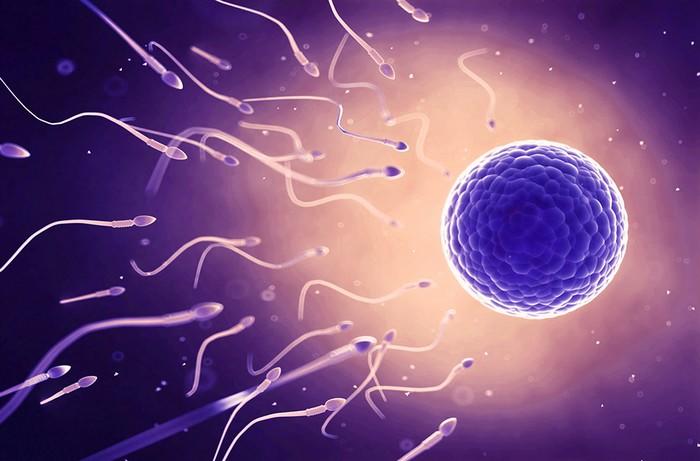Before delving into the specifics of how many drops of sperm are needed to get pregnant, it’s crucial to clarify the distinction between sperm and semen. Sperm refers to the male reproductive cells responsible for fertilizing the female egg, while semen is the fluid that carries and nourishes sperm during ejaculation.
While a single sperm is all that’s necessary to fertilize an egg, semen plays a vital role in transporting and protecting sperm on their journey through the female reproductive tract. Semen is composed of various fluids produced by the male reproductive organs, including sperm from the testes, seminal fluid from the seminal vesicles, and prostatic fluid from the prostate gland.
Quantity for Conception: Understanding Semen Volume and Sperm Count
When discussing how many drops of sperm are needed to get pregnant, it’s essential to consider the typical volume of semen released during ejaculation. The average ejaculate contains approximately 1.5 to 5 milliliters of semen, which may equate to several drops. Within this volume, there can be millions of sperm cells.
Despite the large number of sperm released during ejaculation, only one sperm is needed to fertilize the egg successfully. Once ejaculated, sperm embark on a journey through the female reproductive tract, encountering various obstacles along the way.
Factors Affecting Conception: Importance of Sperm Motility, Morphology, and Count
While the presence of millions of sperm in semen increases the likelihood of successful fertilization, other factors play a crucial role in conception. Sperm motility, or the ability of sperm to move effectively through the female reproductive tract, is essential for reaching and penetrating the egg.
In addition to motility and morphology, sperm count is another critical factor in fertility. A healthy sperm count is typically defined as having at least 15 million sperm per milliliter of semen.
Medical Perspective: Recommended Semen Volume and Sperm Characteristics
Medical experts and organizations like the World Health Organization (WHO) provide guidelines on the recommended semen volume and sperm characteristics for conception. According to WHO standards, a normal semen analysis includes parameters such as semen volume, sperm count, motility, and morphology.
For optimal fertility, WHO recommends a semen volume of at least 1.5 milliliters per ejaculation, with a sperm concentration of at least 15 million sperm per milliliter. Additionally, at least 40% of sperm should exhibit progressive motility, and at least 4% should have normal morphology.
Fertility Challenges: Addressing Low Sperm Count and Quality
Despite the presence of millions of sperm in semen, fertility challenges can arise due to factors such as low sperm count or poor sperm quality. Low sperm count, as mentioned earlier, can significantly impact fertility and may require further evaluation and treatment by a fertility specialist.
Other issues affecting sperm quality, such as abnormalities in motility or morphology, can also contribute to infertility.
Improving Chances of Pregnancy: Tips for Optimizing Sperm Health
For couples trying to conceive, there are steps they can take to improve semen quality and optimize their chances of pregnancy. Maintaining a healthy lifestyle, including regular exercise, a balanced diet, and avoiding smoking and excessive alcohol consumption, can positively impact sperm health.
In addition to lifestyle changes, certain medical interventions may be recommended for men with fertility issues. These may include medications to improve sperm production or surgical procedures to address anatomical abnormalities or blockages in the reproductive tract.
When to Seek Help: Consulting a Fertility Specialist
If a couple is experiencing difficulty conceiving despite regular, unprotected intercourse for an extended period, it may be time to consult a fertility specialist. A fertility specialist can conduct a thorough evaluation of both partners’ reproductive health, including semen analysis for the male partner.
Conclusion
In conclusion, while only one sperm is needed to fertilize an egg, the quantity and quality of semen can significantly impact fertility and the chances of conception. Understanding the factors affecting sperm health and seeking appropriate medical care when necessary can help couples optimize their chances of pregnancy. By addressing lifestyle factors, seeking medical intervention when needed, and consulting a fertility specialist if concerns arise, couples can take proactive steps towards achieving their goal of starting a family.























